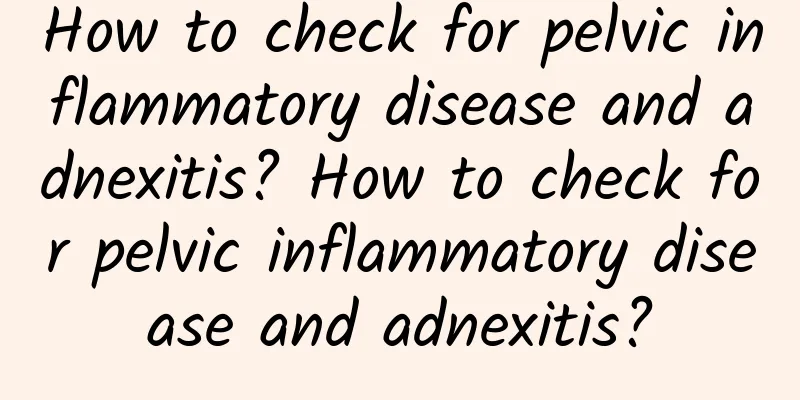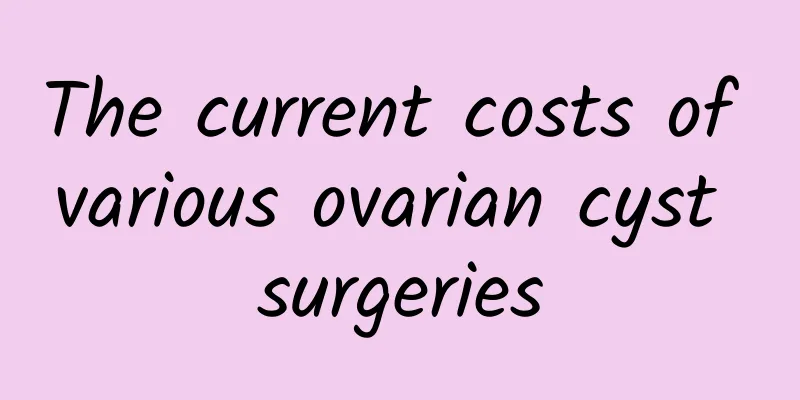How to cure pelvic inflammatory disease? There are corresponding standards

|
Pelvic inflammatory disease is a relatively common gynecological disease. After receiving treatment, there are corresponding standards for whether it has been completely cured. First, there is no more pain in the lower abdomen, and the secretions will gradually return to normal. It can also effectively reduce the chance of recurrence. If all these are met, it means that the disease has been controlled. In current clinical practice, pelvic inflammatory disease is a relatively common infectious disease, which mainly includes inflammation of the fallopian tubes and endometrium. It also includes inflammation of ovarian cysts, pelvic peritonitis, or inflammation of the fallopian tubes. Most of them will appear in one part, but they may also affect other parts, so it is necessary to actively receive treatment. So how can pelvic inflammatory disease be cured? |
<<: What are the precautions after laparoscopic surgery for ectopic pregnancy? Ensure a regular life
>>: How to take care of pelvic inflammatory disease? Pay attention to menstrual hygiene
Recommend
Is pelvic peritonitis sexually transmitted?
Clinically, pelvic peritonitis is one of the most...
Ultrasonic diagnosis of threatened abortion
Some small stretching movements or emotional inst...
A comprehensive review of the treatment methods for uterine fibroids and what to pay attention to when having uterine fibroids
For many patients with uterine fibroids, uterine ...
Regardless of the type of cervical erosion, it needs timely treatment
As a common gynecological inflammation, mild cerv...
The most important prevention measures for vaginitis
Inflammation of the vagina is called vaginitis. I...
Vaginal candidiasis is the most common symptom of vaginitis in women
Common female vaginitis symptoms can be divided i...
Can uterine cysts delay treatment?
Can uterine cysts delay treatment? Whether the tr...
Obesity, cramps, back pain… 8 signs of vitamin D deficiency
Are you missing D? If you suffer from particularl...
What are the early symptoms of ectopic pregnancy?
What are the early symptoms of ectopic pregnancy?...
Computer users should take care of their liver if they have irregular menstruation
Nowadays, more and more women are entering the wo...
It’s hot and my child is picky about food, what should I do? These few tricks must be learned
The hot weather reduces appetite, and children do...
Which hospital is best for painless abortion in Shenzhen?
It is very important to popularize sexual knowled...
Experts explain the dangers of several serious cervical erosions
It is understood that in recent years, the age of...
What are the early symptoms of uterine fibroids?
What are the early symptoms of uterine fibroids? ...
Will early miscarriage occur if ovarian cysts are detected during pregnancy?
Will early miscarriage occur if ovarian cysts are...









